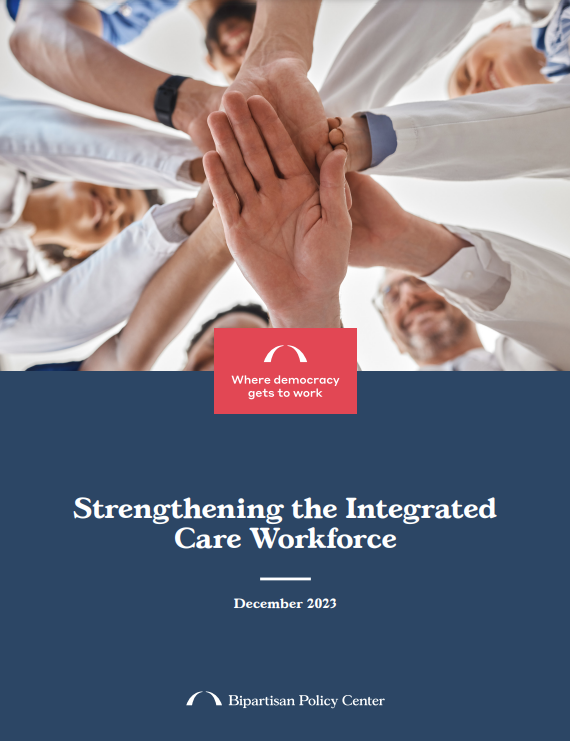Headline
Federal policy recommendations seek to strengthen the integration of behavioral health into primary care, with a focus on workforce.
Context
People living with mental health and substance use conditions often encounter numerous barriers when seeking treatment, compounded by fragmented care across health care providers. Behavioral health integration (BHI), including models such as the Collaborative Care Model and the Primary Care Behavioral Health Model that integrate mental health and substance use services into primary care settings, has emerged as a key strategy for closing this treatment gap.
Findings
The Bipartisan Policy Institute (BPI) conducted extensive interviews and stakeholder roundtables to develop key federal policy recommendations aimed at strengthening the workforce necessary to achieve integration between behavioral health and primary care. BPI’s report contains detailed recommendations, categorized into: (1) training and recruitment; (2) payment and administrative strategies; and (3) network requirements and flexibility. These policy changes would primarily take place through congressional action and regulatory changes overseen by the Health Resources and Services Administration and the Centers for Medicare & Medicaid Services.
Takeaways
This report offers a roadmap for federal policy action to strengthen the BHI workforce, and can serve as a useful tool for policymakers and advocates seeking to expand access to evidence-based care models that improve outcomes for people living with mental health and substance use conditions.

